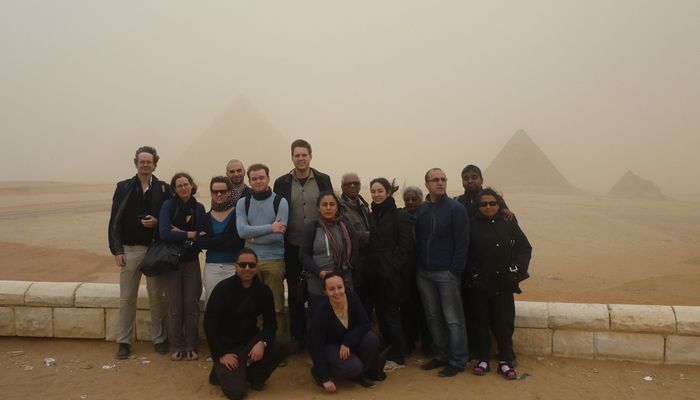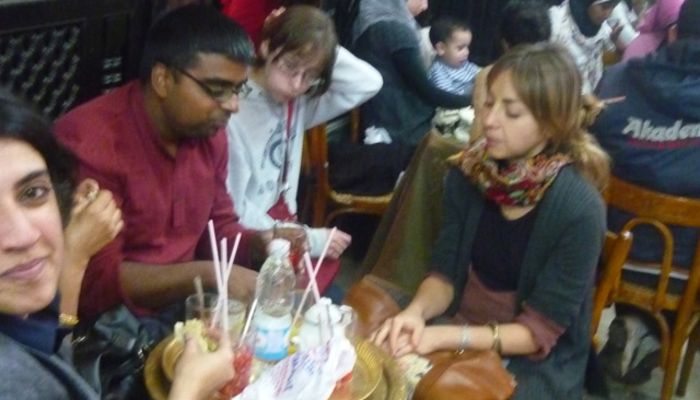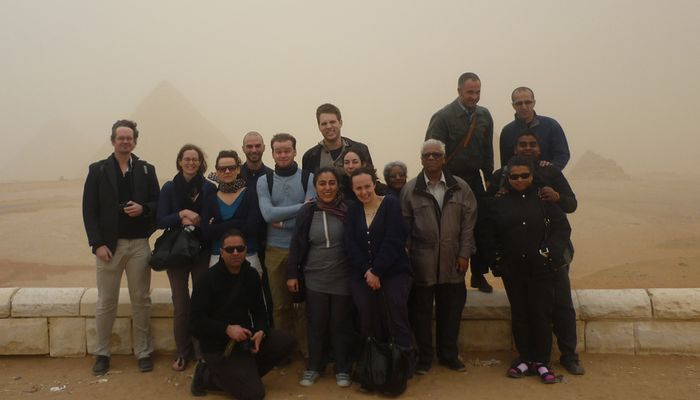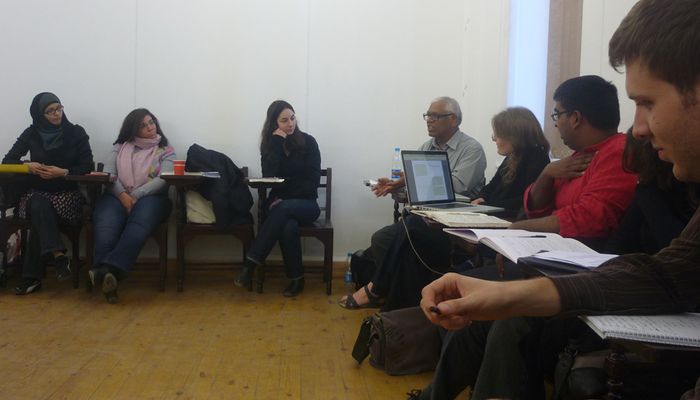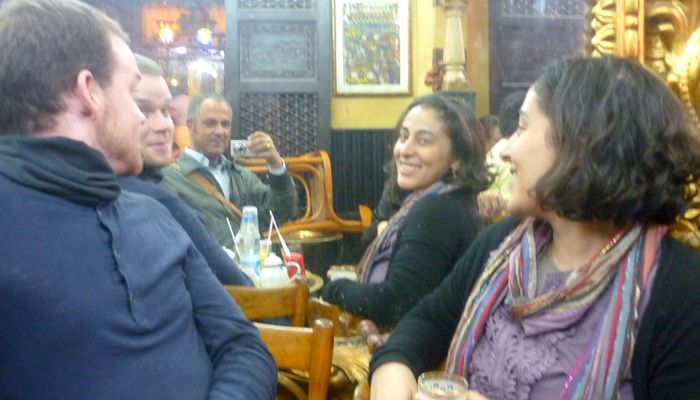“Textual Practices Beyond Europe 1500-1900” was the theme of the international winter school at the Department of Arab and Islamic Civilizations of the American University in Cairo (AUC). The AUC and the Berlin-based Forum Transregionale Studien were jointly organizing the winter school within the framework of the program Zukunftsphilologie: Revisiting the Canons of Textual Scholarship at the downtown-campus of the AUC from December 5-16, 2010.
Textual Practices Beyond Europe 1500-1900
Directed by Manan Ahmed, Muzaffar Alam, Islam Dayeh, Nelly Hanna, Martin Mulsow, Madiha Doss, and Sabine Schülting
The American University Cairo, Egypt

The winter school provides the opportunity for doctoral and postdoctoral students to present and discuss their current research on the function, development, meaning, and practice of philology across varied communities and geographies. The winter school will be chaired by a group of scholars including: Manan Ahmed (Institut für Islamwissenschaft, Freie Universität Berlin), Muzaffar Alam (Department of South Asian Languages and Civilizations, University of Chicago), Islam Dayeh (Freie Universität Berlin), Nelly Hanna (Department of Arab and Islamic Civilizations, AUC), Martin Mulsow (Universität Erfurt), and Sabine Schülting (Friedrich Schlegel Graduate School for Literary Studies, Freie Universtität Berlin).
Zukunftsphilologie endeavours to promote and emphasize primary textual scholarship beyond the classical humanistic canon. In an age of advanced communication, intellectual specialization, and unprecedented migration of knowledge and people, the discipline of philology assumes new relevance. Zukunftsphilologie aspires to support research in marginalized, undocumented and displaced varieties of philology by revisiting pre-colonial texts and scholarly traditions in Asia, Africa, the Middle East as well as in Europe. In order to promote historically-conscious philology, the project will foster research in the following areas: the genealogy and transformations of philological practice, philology’s place in the system of knowledge (e.g. its relation to science, theology, and jurisprudence), philology and the university, and the relation of philology to nation and empire. Zukunftsphilologie aims to examine the role mobility and networks of scholars, play in the dissemination and globalization of knowledge. What is the impact of migration, expulsions and calamities (such as the expulsion of Jews and Muslims from Al-Andalus, the plague, or the displacements and movements accompanied by the expansion of the Ottoman, Mongol or British Empires) on textual practice? How does the mobility of scholars, books, and manuscripts bring about scientific innovation (e.g. in tenth-century Baghdad, during the European Renaissance, during the Ming dynasty or during the 18th and 19th century? How can the world of readers and carriers which surrounded a text since its inception be imagined? How can the literary imagination within texts, their transformative powers, and social function be investigated historically, historiographically, and now, in our own present time? How did texts have different meanings for different readers, or different layers of meanings, which could be utilized by readers or users? How have sacred texts been used in different societies to guide their readers or to control them? How were texts used as a source of power? How did certain groups gain or consolidate their power through texts? To situate a text philologically, historically, culturally is to trace also the networks of readers, and to delineate its movements across linguistic, geographical and temporal borderlines. A text emerges from a particular context; it also emerges among a context of readers; how can one trace the way that readers absorb or alter it, or appropriate it in different geographical, linguistic and temporal contexts? What types of knowledge systems do processes of canonization and reorganization displace? What kinds of transformations, translations and re-translations (e.g. from Sanskrit to Persian, from Greek to Arabic, from Chinese to English or from ancient or medieval to modern) accompany such mobilizations across regions? How did translations, and translations of translations change meanings as they were appropriated by different cultures? With these questions in mind, the Zukunftsphilologie winter school aims to support critical reviews of historical and philological practice beyond and within Europe. "Textual practices" refers to the wide range of production and engagement with texts, regardless of content (be it historiographical, legal, literary, religious, scientific, etc.). The winter school will consider issues such as notions of authorship, genre, periodization, readership, interpretative methods, textual transmission, translation, textual integrity, the archive, editorial choices and policies, the philological curriculum, as well as important philological encounters and debates. By concentrating on textual practices beyond Europe in the period between the 16th and 19th century, the aim is also to contribute to the historicization and pluralization of philology, and to reflect on the wider cultural and political context in which texts and the art of reading emerged and how this has shaped our knowledge.
More information and full list of participants
For a detailed review of the winter school, please see the report

